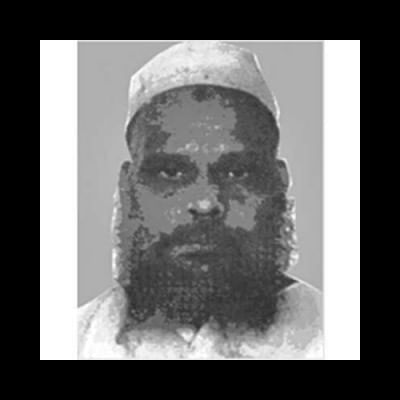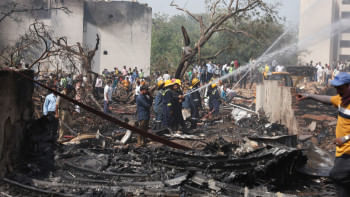Fugitive Kishoreganj Razakar to die

A Razakar commander in 1971, fugitive Syed Hasan Ali has been handed capital punishment for war crimes during Bangladesh's Liberation War.
The Razakar of Kishoreganj can be hanged from the gallows or be gunned down, the court said on his manner of execution – an order that is unique to this verdict.
International Crimes Tribunal-1 today found him guilty in five of the six charges against him over genocide and crimes against humanity. He was given death in two.
The court gave him death for genocide in Shemulhati village in Kishoreganj, killing of 12 hindus, and the genocide of Balongka street at Borgaon village on September 27 that left eight people killed.
He was given jail until death for killing one Tofazzal Hossain, murdering two hindus of Araiura and Chikni villages in the district and acquitted in the charge of plundering and torching houses.
CAN BE GUNNED DOWN
The war crimes tribunal, led by Justice M Enayetur Rahim, read out the summary of 125-page verdict of the absconding criminal who was locally known as Razakar Daroga for his atrocities.
He can be gunned down or be hanged until death from the gallows, Justice Rahim said. "The government will decide on his manner of execution," he said without specifying further.
The court also ordered police to arrest him or take necessary help of the Interpol, the global police network, for capturing Razakar Ali.
The court began reading out the verdict around 11:18am this morning, This three-member tribunal on April 20 kept the case waiting for verdict on completion of arguments by both the prosecution and the defence.
FOLLOWING HIS FATHER'S FOOTSTEPS
Hasan Ali is the son of Syed Musleh Uddin, the vice-president of then East Pakistan unit of Pakistan Democratic Party (PDP) and chairman of the Peace Committee in Kishoreganj sub-division in 1971.
Both the PDP and the Peace Committee opposed the country's independence.
Hasan of Machihata village in Brahmanbaria had already been living in Tarail with his family for many years before the war. Then 24, he was there during the nine-month-long war.
According to the prosecution, Hasan set up a camp of anti-liberation elements at Tarail in April, 1971 and got involved in genocide and crimes against humanity. He was locally known as "Razakar Daroga" for his "atrocious acts", they added.
Though he was not active in politics after independence, Hasan was once involved with Nezam-e-Islami, another anti-liberation organisation, according to the prosecution.
The tribunal on April 3 last year issued an arrest warrant against Hasan, but police submitted a report to the court declaring him a fugitive. The tribunal put the accused on trial in absentia.
On November 11 last year, the court indicted Hasan on six charges. The prosecution produced 26 witnesses, including the investigating officer of the case, before the court. The defence, however, did not produce anyone.
CHARGES
Torching and looting of seven houses of Hasan Ahmed and Sadot Ali of Sachail Purbapara village on April 27; killing of one Tofazzal, abduction of two other people and burning of two houses at Konabhawal village on August 23; act of genocide in Palpara of Shemulhati village on September 9 that left 12 people killed; act of genocide at Borgaon village on September 27 that left eight people killed and abduction of 10 others; abduction and murder of Kamini Kumar Ghosh and Jibon Chakravarty and looting of Ghosh's house at Araiura village on October 8; and killing of Rashid Ali Bepari and torching of 100 houses at Sachail village on December 11.

 For all latest news, follow The Daily Star's Google News channel.
For all latest news, follow The Daily Star's Google News channel. 



Comments